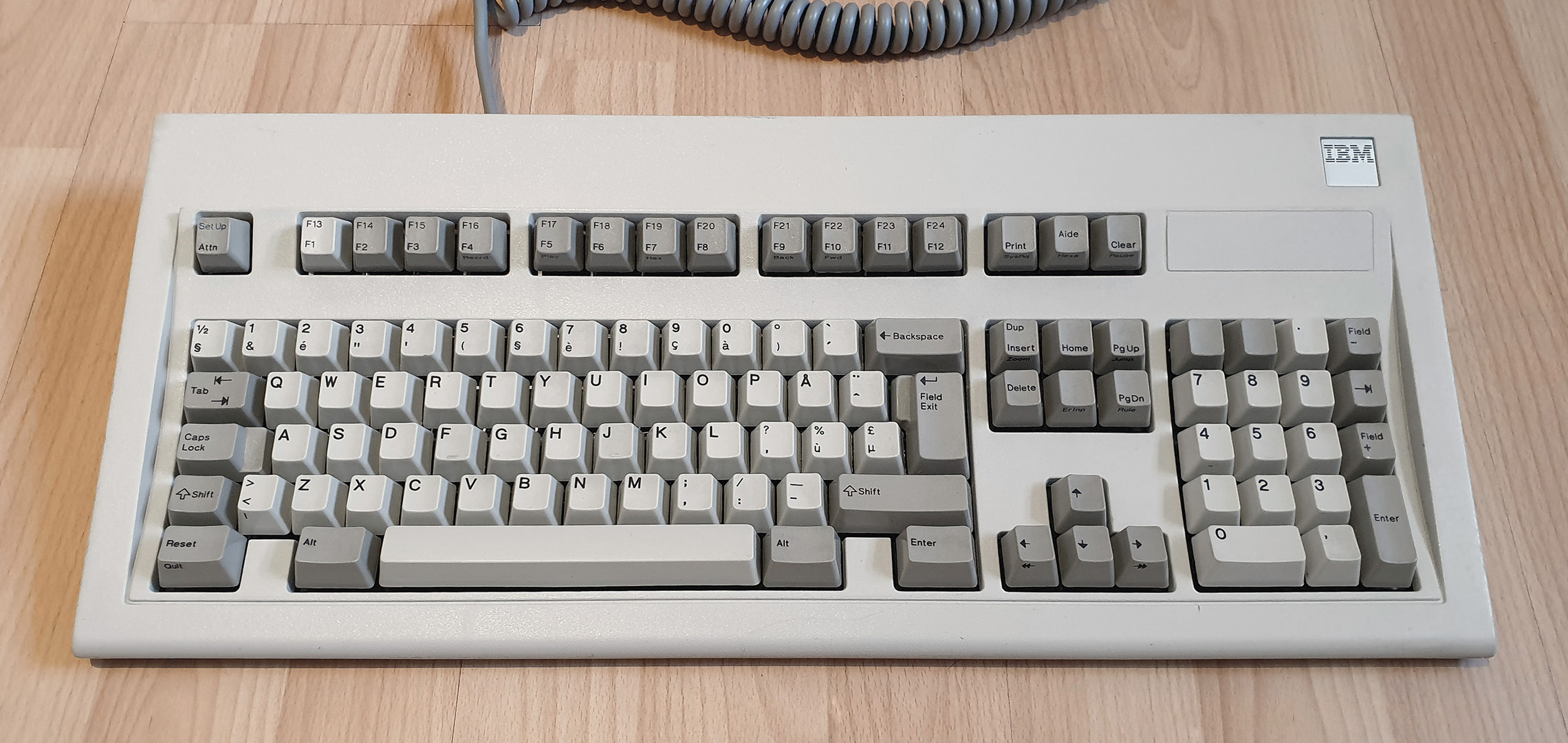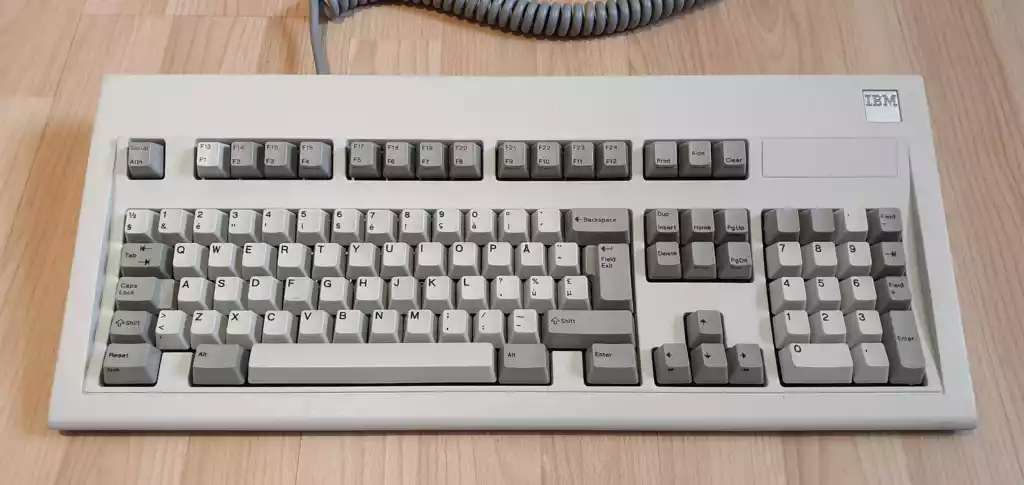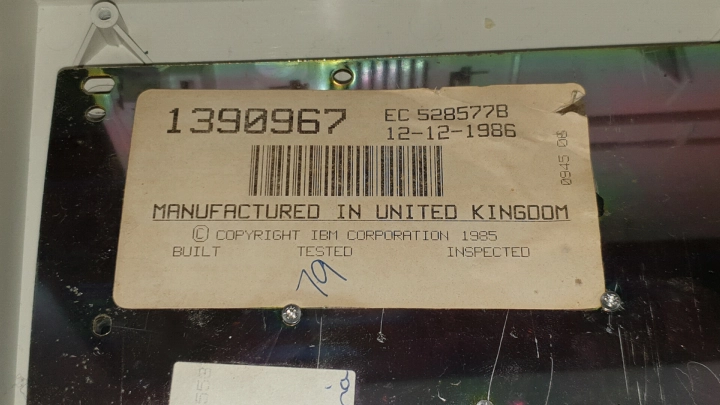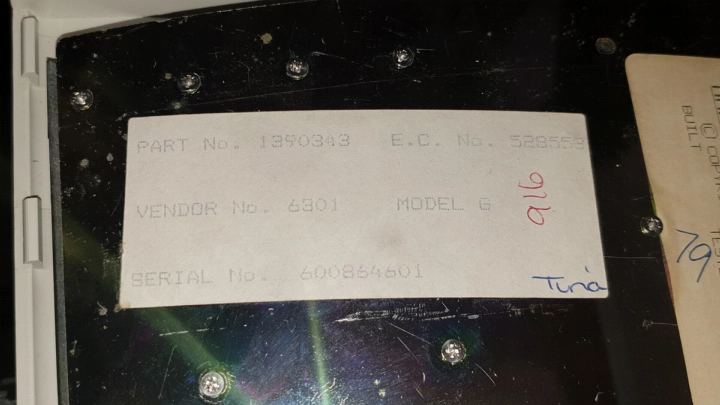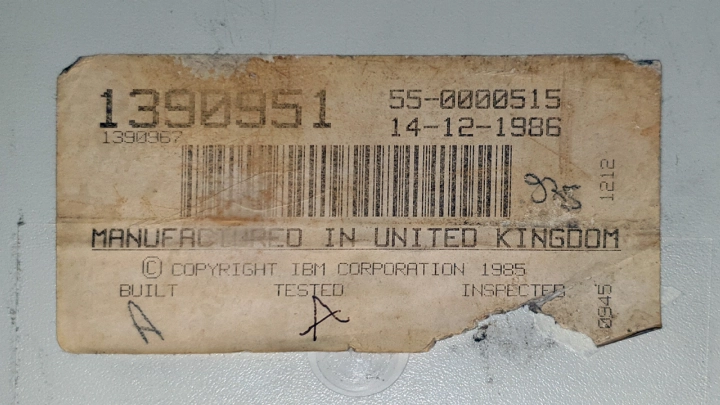Notes
A previous owner at some point must have swapped some French/Belgian keycaps onto this keyboard. It's supposed to be a Finnish/Swedish keyboard.
| Full name | IBM 3197 Display Station Enhanced Keyboard |
|---|---|
| Part number | 1390951 |
| Type | Model M Enhanced Terminal Keyboard |
| Known host systems | IBM 3197 Model C20 Color Display Station (IBM 5250 family) IBM 3197 Model CE0 Color Display Station (IBM 5250 family) IBM 3197 Model D20 Display Station (IBM 5250 family) IBM 3197 Model DE0 Display Station (IBM 5250 family) IBM 3197 Model W20 Display Station (IBM 5250 family) IBM 3197 Model WE0 Display Station (IBM 5250 family) |
| Keyswitches | IBM membrane buckling springs |
| Feet | Single-setting flip-out feet |
| Date of production | 1986-12-14 |
| Date of acquisition | 2022-05-31 |
